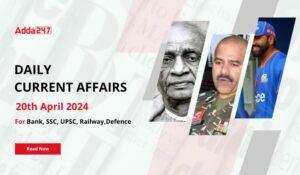Hello Readers,
Here we come up with another article. Because we don’t want you to miss any important topic which is related to our self not only in terms of exams but as a human being. So here we go –
The United Nations Educational, Scientific and Cultural Organization (UNESCO) is a specialized agency of the United Nations (UN). It was created in 1945 to contribute to the building of peace, the eradication of poverty, sustainable development and intercultural dialogue through education, the sciences, culture, communication and information.
The Organization has more than 50 field offices around the world. Its headquarters are located at Place de Fontenoy in Paris, France. UNESCO works to create the conditions for dialogue among civilizations, cultures and peoples, based upon respect for commonly shared values.
UNESCO has 195 member states and nine associate members. It is governed by the General Conference and the Executive Board. The Secretariat, headed by the Director-General. Most of its field offices are “cluster” offices covering three or more countries, national and regional offices also exist. It is also a member of the United Nations Development Group.
Objectives and Functions : –
Its objectives and functions are as follows:
- To provide a platform for dialogue and participation of members of the Forum to promote and strengthen the processes of democratization, the rule of law and respect for human rights in Africa and the Arab region.
- To help strengthen Arab-African relations and promote cooperation at the legislative, institutional, business, academic and civil society organizations levels.
- To strengthen the conditions necessary for peace in both regions, given that conflict is incompatible with democracy and human rights and reduces all possibility for their development.
- To establish or strengthen existing research networks, undertake research and studies, disseminate the findings, organize dialogues and debates and formulate policy recommendations, strategies and plans of action in the fields of democracy and human rights.
- To promote and undertake advocacy and ensure the participation of the Forum members to raise awareness and effective participation and engagement of the citizens, political actors and other decision-makers in the activities of the Forum and national processes,
- To encourage policy-makers to promote the participation of women in political, legislative, social, economic and cultural processes.
- To promote youth participation in political, legislative, social, economic and cultural processes.
- To encourage and foster implementation of the Forum’s recommendations, resolutions, strategies and plans of action through national ownership, integration and/or adoption of national legislation, strategies, plans of action and other national systems, and to monitor implementation.
- To promote advocacy activities that support the implementation of regional and international instruments and decisions in the fields of democracy and human rights and that support existing mechanisms and national institutions.
- To establish a sound communication programme at the Forum to disseminate all the Forum’s outputs and activities through different media and IT channels.
- To take any other measures conducive towards the promotion of democracy and human rights in Africa and the Arab region.
UNESCO and India :-
In India, taking into account its five major programmes, the Mission is to focus on a number of overarching objectives:
• Attaining quality education for all and lifelong learning.
• Mobilizing science knowledge and policy for sustainable development.
• Addressing emerging social and ethical challenges.
• Fostering cultural diversity, intercultural dialogue and a culture of peace.
• Building inclusive knowledge societies through information and communication.
India is currently a member of its UNESCO’s Conventions, including those on natural and cultural heritage, education, and intellectual property rights. Among the more recent ratification include the Convention of Intangible Cultural Heritage in 2003, the Convention on the Protection and Promotion of the Diversity of Cultural Expressions in 2005 and the Convention Against Doping in Sports in 2005.
UNESCO has two Offices in India, the New Delhi cluster office for eleven countries in South and Central Asia (Afghanistan, Bangladesh, Bhutan, India, Iran, Maldives, Mongolia, Myanmar, Nepal, Pakistan and Sri Lanka) and most recently the MGIEP – the Mahatma Gandhi Institute of Education for Peace and Sustainable Development, a Category 1 UNESCO Institute established and fully supported and funded by the Government of India. This is of particular significance since it is the first Category 1 Institute in the Asia-Pacific region and was approved by the Executive Board and General Conference within an unprecedented time frame of six months.
A Category II Regional Centre for Biotechnology has also been established. The 37th General Conference has approved a proposal for a second institute on Natural World Heritage located in Dehradun’s Wildlife Institute.
Extra Info :




 Daily Current Affairs 20th April 2024, I...
Daily Current Affairs 20th April 2024, I...
 Daily Current Affairs 19th April 2024, I...
Daily Current Affairs 19th April 2024, I...
 Daily Current Affairs 18th April 2024, I...
Daily Current Affairs 18th April 2024, I...



